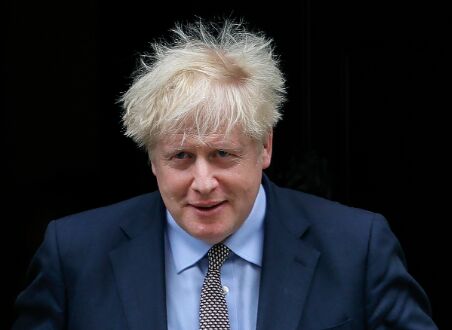Going out with a fizzle

With an exaggerated show of triumph, UK Prime Minister Boris Johnson declared this week that, "We (the UK) have taken back control of our destiny." Johnson was, of course, referring to the recently concluded Brexit trade deal that will bring to end a process that many say was decades in the making. For Boris Johnson, this is a moment of supposedly great catharsis, a culmination of efforts that he consciously or unconsciously started work as the Brussels correspondent for the Daily Telegraph decades ago. It is hard to say that Johnson expected his so-called 'Euro myths' (which ranged from assertions of the EU standardising condom sizes to eliminating certain flavours of chips) to actually one day culminate in Brexit. While there are those who have joined in celebrating the 'triumph' of the trade deal, the general response has been more of relief and mild indifference. The UK is going through a particularly brutal phase of the ongoing third wave of the pandemic and the national fervour and elation that Johnson would have expected is unlikely to be forthcoming. UK trade unions and business groups have drily noted that while the deal may bring "a little more than muted cheer", the ongoing state of furloughs and cutbacks facing most businesses would mean that there is simply no time and capacity for most businesses to implement the necessary changes for Brexit in time. This 'cautious welcome' is a generous assessment compared to the one that many experts have given the final deal.
The deal has been called a deal that no one wanted. While the deal does lessen the impact that a no-deal Brexit would bring, this hard Brexit will still have a considerable impact that will become more evident as time passes. At it's core, the deal ensures that half of USD 900 billion worth of EU-UK commerce will remain free of tariffs and quotas. Additionally, the deal also upholds the 'Good Friday Agreement' by making sure that sensitive border between Ireland and Northern Ireland remains without extensive control and separation. At the same time, there will be significant downsides that are already visible. For one, UK goods will now have to go through a process of compliance with EU norms, tariff or not. The deal also does not protect the freedom of movement. Effectively, UK nationals will no longer have the freedom to work, study or start a business or live in the EU and they would require a visa for longer stays. Another big hit is that professionals will not be able to automatically practice anywhere in the EU without formally gaining recognition in the member state they plan to practice in. With many other uncertain effects and conditions to establish such as the state of the fisheries policy, the final shape of Brexit is not clear at the moment.
What is clear is that Brexit was not likely the product of any economic considerations, to begin with. Commentators have noted that most opponents of Brexit fail to recognise that it was never about the economic gains so much as it was a matter of sovereignty. The idea that the UK was somehow beholden to the EU was far worse than any material reality of financial gain or loss. It is the only idea that would possibly explain a trade deal that reverses nearly half a century of UK attempts to integrate with the European economy. Some have even questioned if the goalpost of 'increased sovereignty' was actually achieved as UK producers will regardless have to comply with EU regulations to sell to the European market. There is also very real expectations that Brexit will depress the drive for business investment in the UK for some time to come. This is not to even speak of the damage that the Brexit process has done to the image of the UK as a responsible nation on the world stage, a cost that may have the longest-lasting effects.
In this flurry of optimism and biting critique, there were notes of grim introspection as well. In 2016 when Brexit was kicking-off, the idea of protectionism was still relatively marginal. Now, as the deal concludes, the world is witnessing a period of increasing tendencies of nationalism and protectionism. Cutting yourself off one of the large trade blocs of the world in a time of increasing economic uncertainty is not an ideal move towards the future. Johnson has attempted to mitigate potential economic fallout from the deal by brokering a series of deals worldwide. India too is one of the areas of interest for the UK, a fact signified by a recent visit by UK's Foreign, Commonwealth and Development Minister, Dominic Raab that may lead up to a larger free trade agreement in the post-Brexit, post-Covid future. As a closing note, news commentators are already predicting that if and when public opinion sours against the Brexit deal, the Boris Johnson government is expected to once again take to the field to assign blame to the EU in a never-ending game of populism where finding a political scapegoat holds priority.



